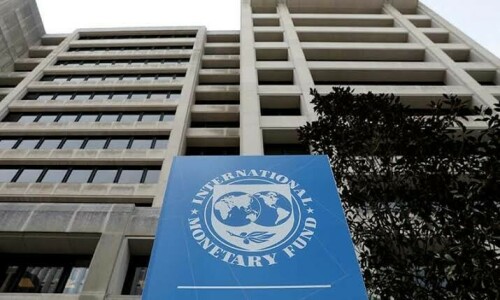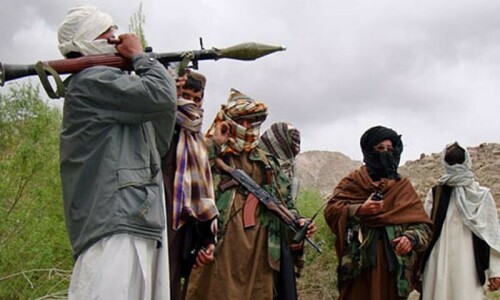WASHINGTON, Nov 16: The Pentagon has admitted that US troops used white phosphorus as a weapon against insurgents in the Iraqi city of Fallujah last November. “It was used as an incendiary weapon against enemy combatants,” military spokesman Lt-Col Barry Venable told the BBC in Washington.
In London, Prime Minister Tony Blair’s official spokesman told reporters on Wednesday that the British military uses white phosphorous in Iraq but only to lay smokescreens.
“Use of phosphorus by the US is a matter for the US,” said the spokesman, briefing reporters on customary condition that his name is not published. “British forces possess white phosphorous but it is used for producing smoke.”
White phosphorous, in a form used by the military, ignites when it is exposed to oxygen, producing such heat that it bursts into a yellow flame and produces a dense white smoke. It is used to mark enemy targets and to produce smoke for concealing troop movements. It can also be used as an incendiary device to firebomb enemy positions. It continues to burn until deprived of oxygen and, if extinguished with water, can later reignite if the particles dry out and are exposed again to the air.
White phosphorous can cause painful burn injuries to exposed human flesh. If particles of ignited white phosphorus land on a person’s skin, they can continue to burn right through flesh to the bone. Toxic phosphoric acid can also be released into wounds, risking phosphorus poisoning.
Exposure to white phosphorus smoke in the air can also cause liver, kidney, heart, lung or bone damage and even death.
A former US soldier who served in Iraq says breathing in smoke close to a shell caused the throat and lungs to blister until the victim suffocated, with the phosphorus continuing to burn them from the inside.
The battle for Fallujah was the most intense and deadly fight of the war, after the fall of Baghdad in April 2003. The city, about 35 miles west of Baghdad on the Euphrates River, was a critical insurgent stronghold.
Despite initial denials, Pentagon acknowledged on Tuesday that US troops had used the substance as an incendiary weapon against insurgent strongholds there.














































